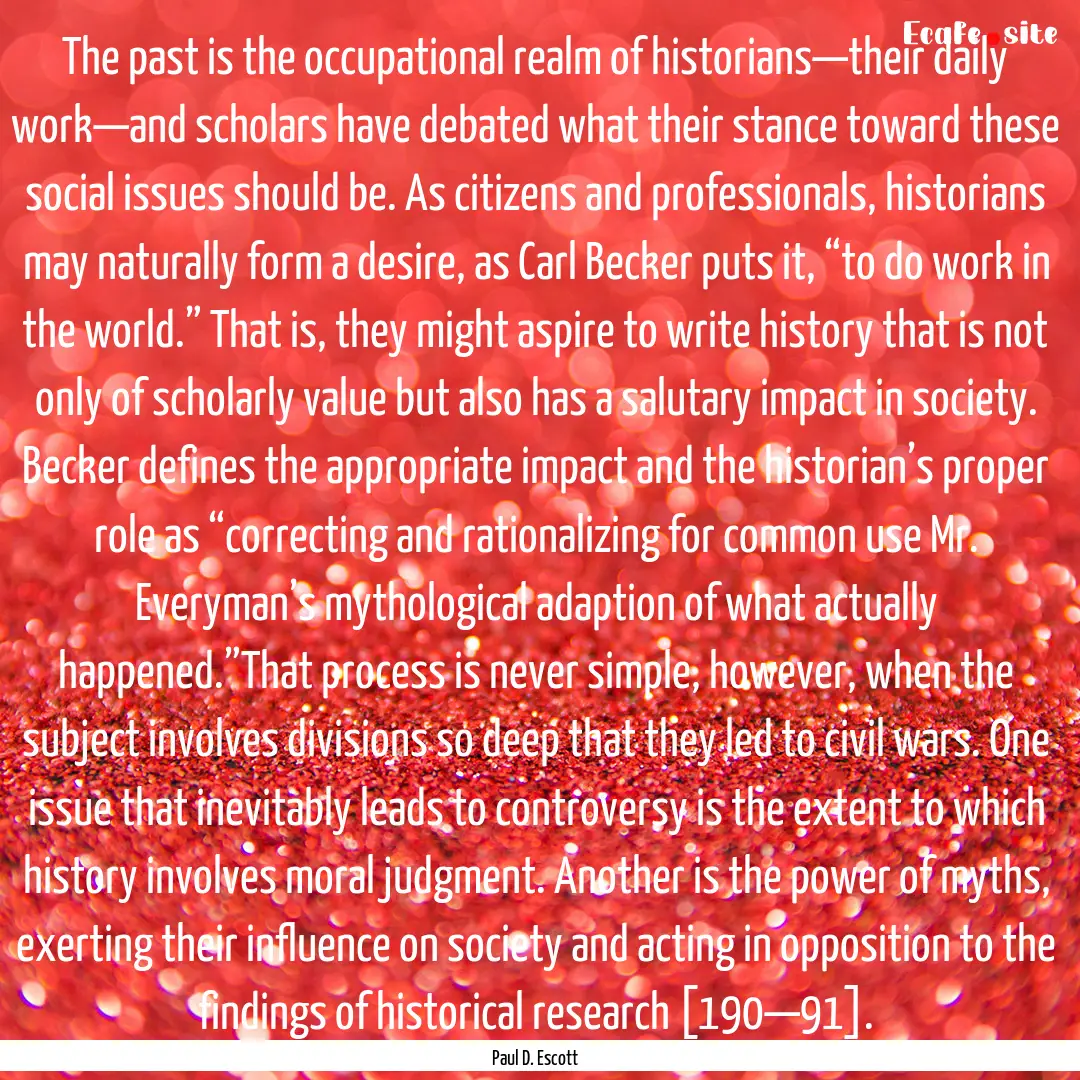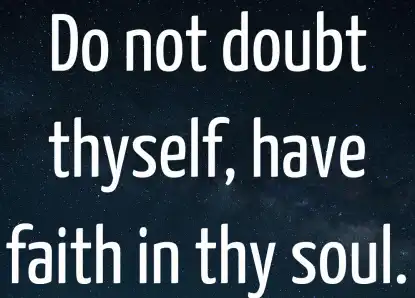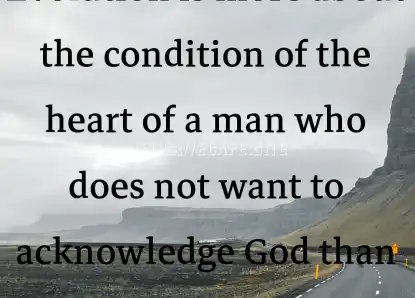
Report, if you have a problem with this page“ The past is the occupational realm of historians—their daily work—and scholars have debated what their stance toward these social issues should be. As citizens and professionals, historians may naturally form a desire, as Carl Becker puts it, “to do work in the world.” That is, they might aspire to write history that is not only of scholarly value but also has a salutary impact in society. Becker defines the appropriate impact and the historian’s proper role as “correcting and rationalizing for common use Mr. Everyman’s mythological adaption of what actually happened.”That process is never simple, however, when the subject involves divisions so deep that they led to civil wars. One issue that inevitably leads to controversy is the extent to which history involves moral judgment. Another is the power of myths, exerting their influence on society and acting in opposition to the findings of historical research [190—91]. ”

Paul D. Escott
From : Uncommonly Savage: Civil War and Remembrance in Spain and the United States



